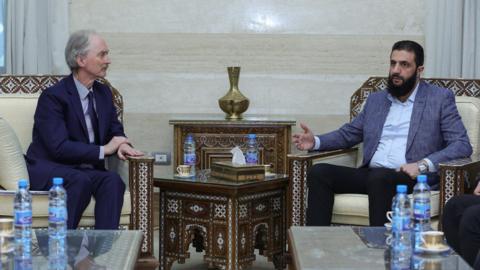HTS is designated as a terrorist organisation by the UN, the US, the EU, the UK and others.
Symbolically, its leader has dropped his wartime pseudonym of Abu Mohammed al-Jolani and reverted to his real name of Ahmed al-Sharaa.
Sunni Muslims are a majority in Syria, which has a strong secular tradition. Sharaa insists HTS is a religious nationalist movement prepared to tolerate other groups.
Mr Pedersen said Sharaa has said "many positive things". But some Syrians, he said, did not believe the HTS leader, who until 2016 had a long history as a jihadist extremist.
"I must be honest. I'm hearing from many Syrians that they're asking questions whether this will actually be implemented. They've got their doubts."
That, he said, was not surprising, given the speed of change in Syria.
"If the transition is to succeed, this needs to be a process that is co-operative."
"[Sharaa] needs to work with the different armed factions that went in together with him. He needs to work with a broader group of former opposition. He needs to make sure that he's working with a broad group of civil society women. And as we all agree with the broadest spectrum possible of Syrian society."
